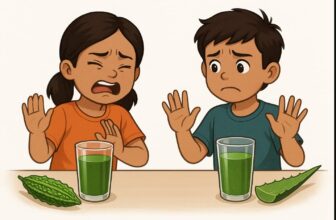India’s snack market is massive, but not every popular treat has had a smooth ride. Some were temporarily recalled, others banned at the state or national level, and a few vanished without explanation.
These decisions weren’t always front-page news, yet they impacted what millions of Indians consumed every day. Here are 10 popular Indian snacks that were quietly banned or recalled and the real reasons behind each case.
1. Kurkure (PepsiCo India)
Status: Not banned, but deeply affected by a viral hoax
A widely circulated social media claim alleged that Kurkure contained plastic because it crackled when burnt. This created panic, even though the snack is made from rice, cornmeal, and gram flour.
Outcome:
PepsiCo launched awareness campaigns and filed defamation cases. FSSAI confirmed the snack was safe, but consumer perception was damaged for years.
2. Kinder Joy (Ferrero India)
Issue: Customs seizures over safety concerns for children
Kinder Joy faced pushback in certain ports and states during the 2000s over the embedded toy in its packaging, which regulators feared could pose a choking risk.
Outcome:
Ferrero reworked packaging and warnings to comply with Indian regulations. It’s still available today with added precautions.
3. Lays – American Style Cream & Onion (Imported Version)
Reason: Additive concerns and labeling irregularities
Some imported variants of this flavor used ingredients flagged by food safety groups. Though not banned, they were quietly reformulated for the Indian market.
Outcome:
The version now sold in India uses permitted flavoring agents and clearer labeling.
4. Mini Jelly Cups (Various Local Brands)
Reason: Choking hazards, especially among children
These small jelly candies with peel-off tops were popular in the 2000s, often sold near schools. Several were banned by FSSAI after being linked to choking deaths globally.
Outcome:
They were pulled from stores and are rarely seen now, especially in organized retail.
5. Gutkha Masala Packets Sold as Candy or Mukhwas
Reason: Misleading packaging and harmful ingredients
In some cases, gutkha or tobacco-based supari was packaged to resemble snack items or mouth fresheners, targeting youth and children.
Outcome:
Many states banned such products outright under tobacco control laws. Packaging rules were tightened.
6. Pulse Candy – Mango Tangy Flavor (Temporary Recall)
Reason: Packaging and quality issues in specific batches
In 2018, a small batch of Pulse candies showed issues like crystallized filling or discoloration. The brand voluntarily pulled them for reformulation.
Outcome:
Product was improved and reintroduced. Pulse continues to be a market leader.
7. Imported Snacks with Artificial Colors (Multiple Brands)
Reason: Use of banned colorants like Sudan dyes or Red 2G
Some imported candies and chips failed Indian food safety tests due to non-permitted coloring agents.
Outcome:
Such products were either banned, seized at customs, or removed by retailers.
8. Unbranded Chinese Snacks (Chips & Lollipops)
Reason: No labeling, poor quality, and hygiene violations
Between 2010 and 2012, several low-cost snacks from China were pulled from school canteens and small shops due to lack of ingredient details and manufacturing licenses.
Outcome:
States like Maharashtra, Gujarat, and Tamil Nadu issued specific restrictions or bans.
9. Local Energy Sodas and Drinks (Various Brands)
Reason: Excess caffeine and undeclared ingredients
Some local brands sold energy drinks under the guise of regular soda. They exceeded caffeine limits and skipped required warnings.
Outcome:
FSSAI issued recalls and strengthened enforcement around caffeine labeling.
10. Bhujia and Namkeen Brands with Non-Permitted Oil
New Addition
Reason: Use of recycled or unapproved cooking oils
FSSAI crackdowns in several Indian cities found that small-scale snack brands were using re-used frying oils or low-grade fats in packaged bhujia and namkeens.
Outcome:
Products were either recalled or banned at the local level. Sellers were fined and asked to relabel or reformulate.
Summary: Indian Snacks That Faced Bans or Recalls
| Snack/Product | Reason for Ban/Recall | Outcome |
|---|---|---|
| Kurkure | Viral “plastic” myth | Rumor debunked, still sold |
| Kinder Joy | Toy safety concerns | Modified packaging |
| Lays (imported version) | Additives and labeling issues | Reformulated |
| Mini Jelly Cups | Choking hazard | Banned from shelves |
| Gutkha-style candy packs | Misleading tobacco packaging | Banned in many states |
| Pulse Candy (mango flavor) | Shelf life issues (select batches) | Returned post recall |
| Imported snacks (various) | Banned food colorants | Removed from sale |
| Unbranded Chinese snacks | No labeling, hygiene violations | Banned in school areas |
| Local energy sodas | Excess caffeine, poor labeling | Recalled or reformulated |
| Cheap namkeens & bhujia | Reused/banned oils found | Local bans and reformulation |
Many of these snacks were everyday favorites until regulatory scrutiny revealed hidden risks. While some were unfairly targeted by rumors, others faced legitimate concerns related to public health and safety.
As a consumer, it’s worth paying attention to labels, batch numbers, and FSSAI updates. Snack smart not just tasty.





